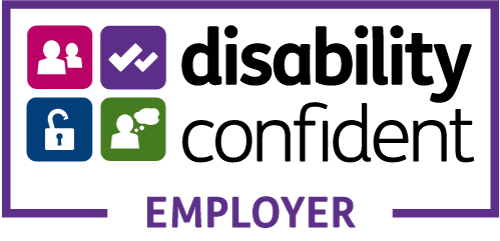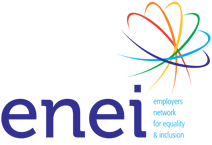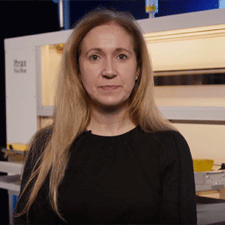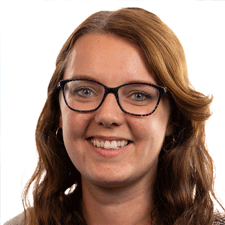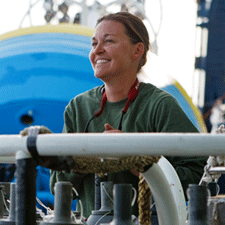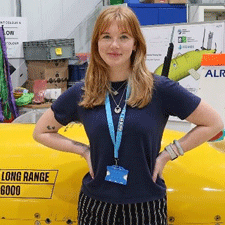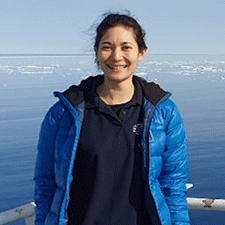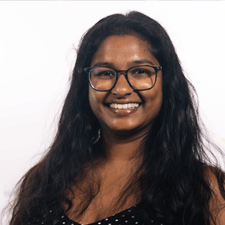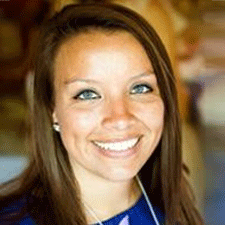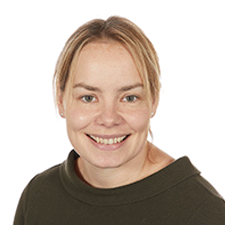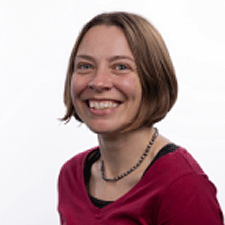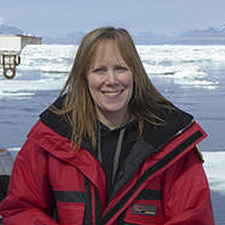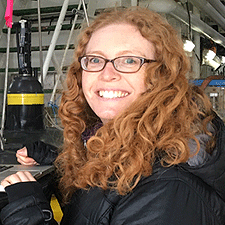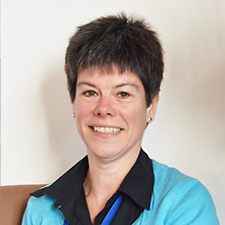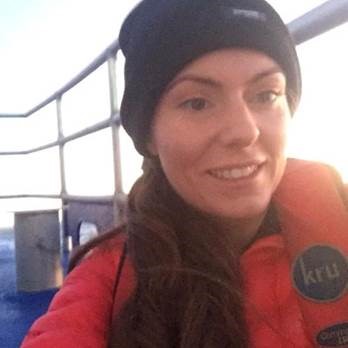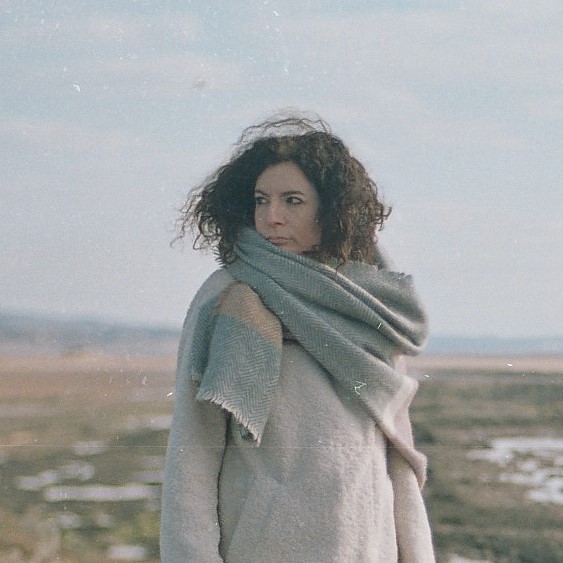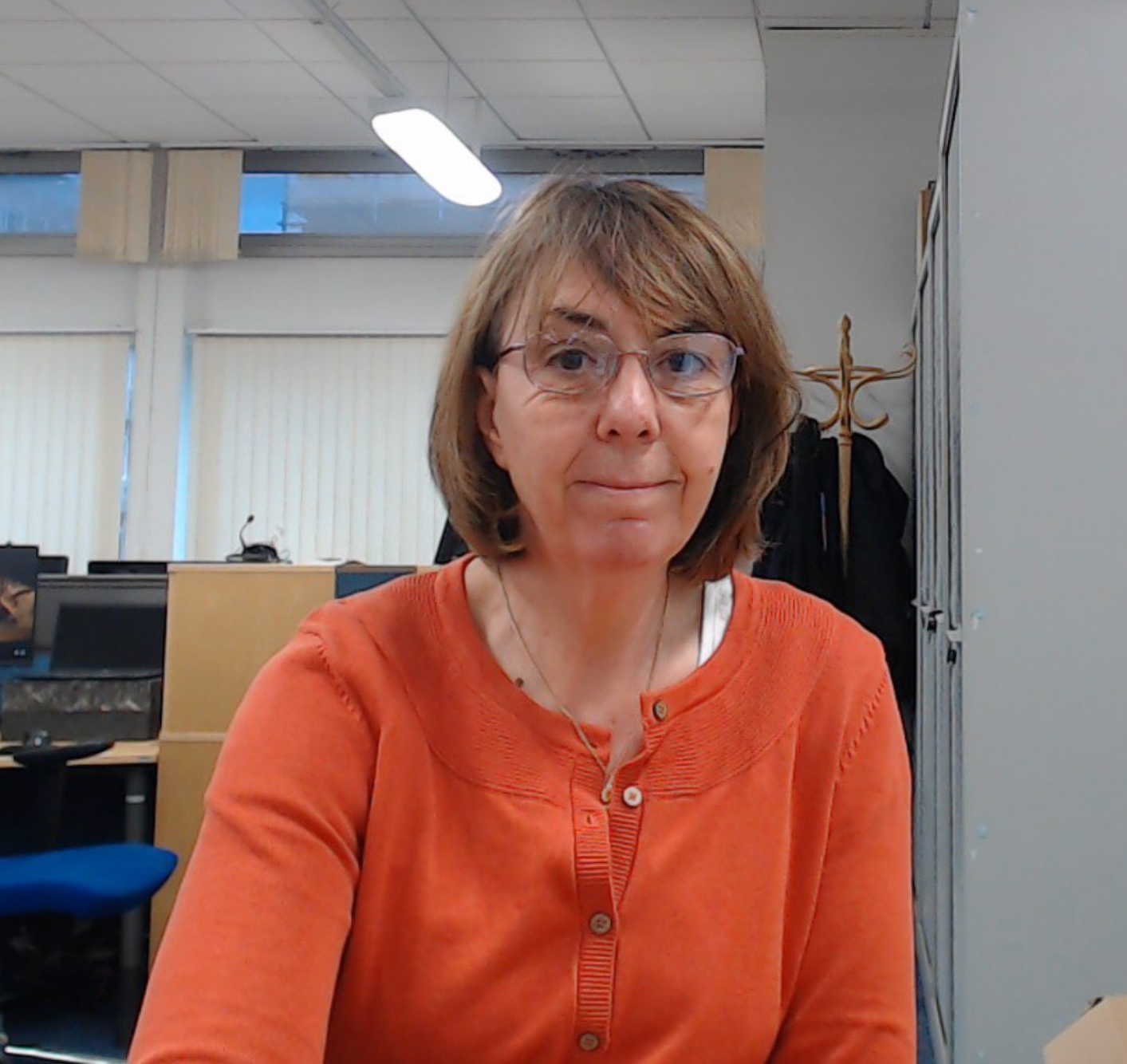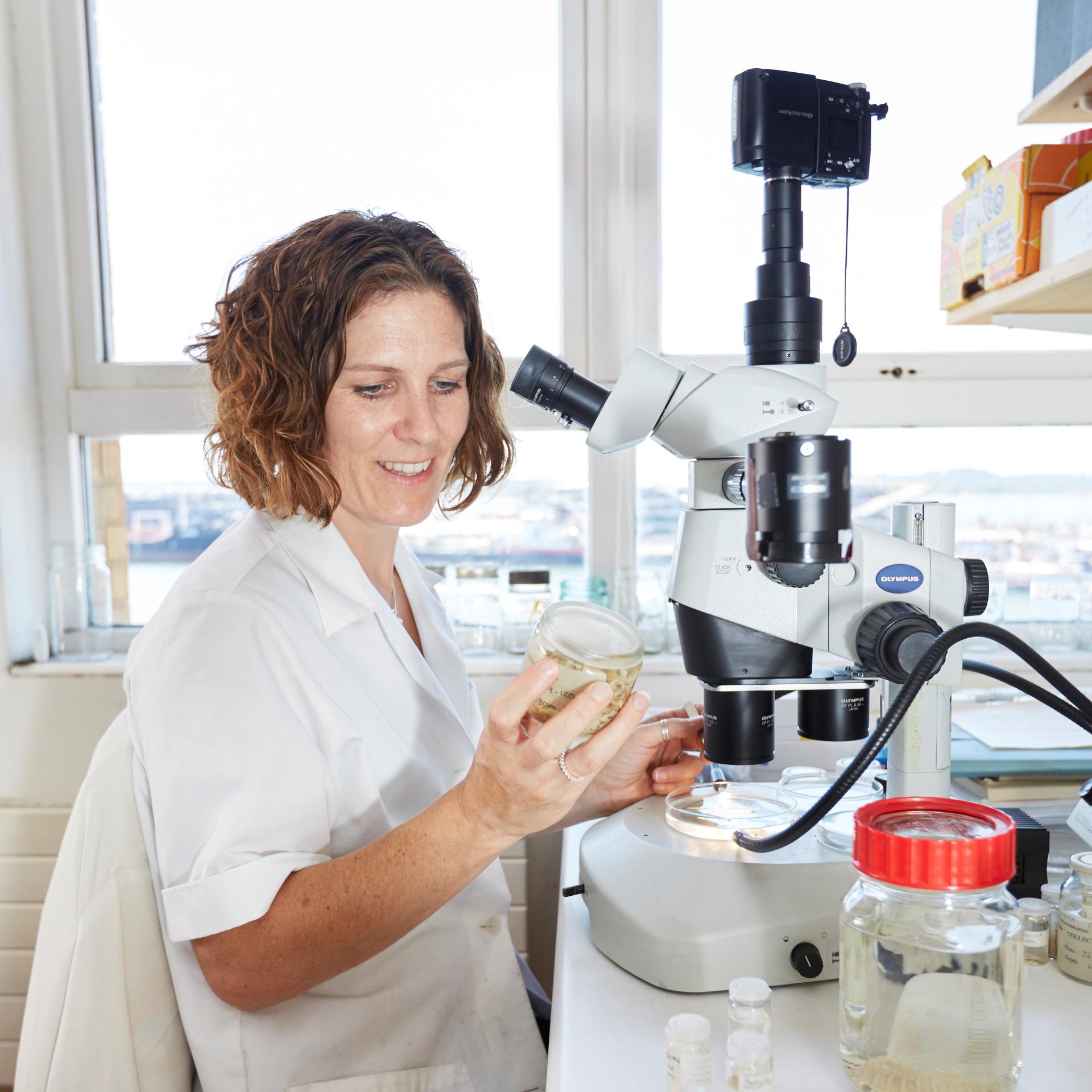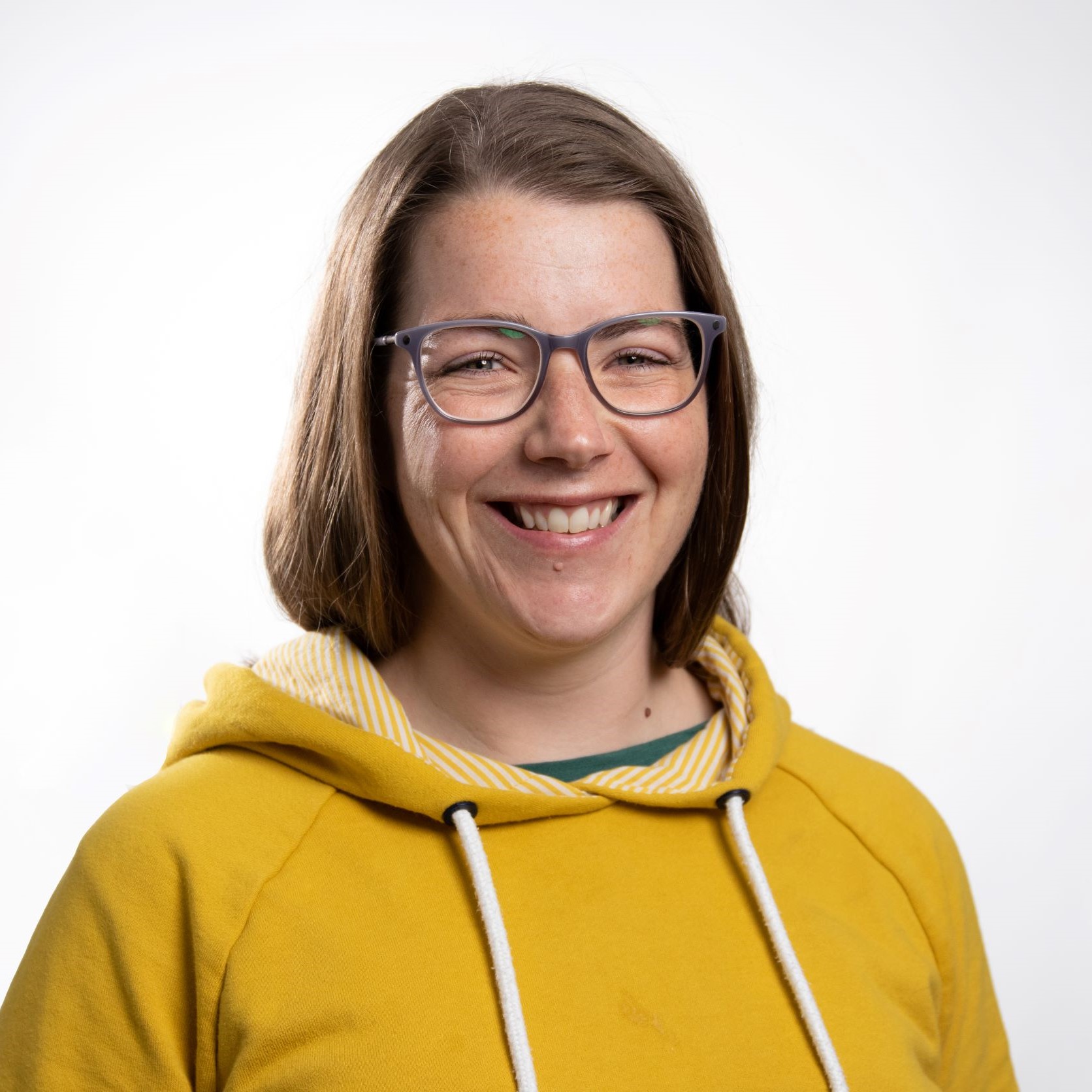Women in NOC
We are deeply committed to gender equality, actively promoting a diverse and inclusive community. This commitment is evident in our policies, recruitment practices, and ongoing initiatives to ensure equal opportunities and representation at all levels.
By fostering inclusivity, we create an environment where everyone can thrive and do great work. Through continuous evaluation and support mechanisms, we cultivate a culture that values and empowers individuals, irrespective of gender, fostering a more equitable and dynamic community. Below are profiles of women in NOC from different career paths and backgrounds. You can view more about Women in Engineering here, download even more profiles from our Educational Resources and view our playlist of Inspiring Futures career videos on our YouTube channel.
Dr Suzie Maclachlan
I am Head of the British Ocean Sediment Core Research Facility (BOSCORF) at NOC. Part of my role is to ensure that the facility provides the science community with innovative imaging and scanning techniques to analyse sediment samples. I am interested in applying these techniques to a wide variety of geological and other sample types.
What’s your career path?
After completing a degree in Environmental Geoscience, I worked as an Environmental Geoscientist for an Environmental Consultancy undertaking a variety of projects from site investigations (considering soil, gas, groundwater and contamination issues), gas and groundwater monitoring and supervising site remediation. I then returned to academia to undertake a PhD in marine geology. On completing my PhD I came to NOC for a Postdoc position, before taking on a technical role within BOSCORF.
What’s your career highlight to date (in NOC or elsewhere)?
I’m lucky enough to have worked within the Arctic Circle on land and at sea. It was a privilege to experience the desolate and barren large open landscapes, endless glaciers, extreme light variations, and the exciting animal life.
What’s the best thing about working at NOC?
The people. It is an amazing place for meeting interesting people doing a huge variety of innovative scientific activities.
What one piece of career advice would you give to women or girls thinking about a role in science or engineering?
I would recommend looking out for courses and events online, if you are looking to know more, there are lots of helpful resources out there to help your development. There are many free-to-join events where you can have further insights into science careers, such as MOOCs. These are great chances to meet like-minded people.
Dr Chelsey Baker
I am a marine biogeochemist whose research focuses on understanding biological controls on the ocean carbon cycle, specifically ocean carbon storage, using both models and observations.
What’s your career path?
I went to study Ocean Science at Bangor University for my undergraduate degree after reading a popular science article about ocean acidification and wanted to learn more. I then moved to Southampton to study for a Masters in Marine Science with a focus on biogeochemistry. During my MSc I started working with researchers in NOC’s Ocean Biogeosciences group and had the opportunity to go to sea on a research cruise. After this taste of marine science research, I applied for a PhD programme at the University of Southampton and continued to work with researchers in the Ocean Biogeosciences group on ocean carbon storage. After my PhD I pivoted from observations to modelling and started a position as an ocean biogeochemical modeller in the Marine Systems Modelling group at NOC in early 2020.
What’s your career highlight to date (in NOC or elsewhere)?
In December 2023 I got to attend COP28 in Dubai, which is an exciting and somewhat unusual opportunity for an early career researcher. It was an amazing experience both professional and personally. You can learn more about my time at COP.
What’s the best thing about working at NOC?
The people! I am very lucky to work with a lot of wonderful people who are passionate about the ocean and work together to carry out and facilitate exciting and cutting-edge science.
What one piece of career advice would you give to women or girls thinking about a role in science or engineering?
Just dive in (pun intended) and find good, supportive people to work with. When I started studying Ocean Science I had no career plan in mind and I had no idea at the end of my undergraduate degree that the job I do now existed. It was the support of those I’ve worked with during my postgraduate degrees and a healthy dose of enthusiasm that has got me to where I am today.
Tina Thomas
I am a Moorings Technician, part of a team that prepares the hardware and scientific instruments for our moorings from a calculated mooring design. A portion of my job requires that I go to sea to deploy the moorings we prepare, using the ship’s cranes, frames, and winches. After the mooring has been in the sea for as little as a day or for as long as four years, depending on the project, we go back to recover it. Once recovered, we breakdown the mooring, upload the data, then clean and recycle what we can to be used in a future deployment. Moorings are an incredible reference, specifically as a time series, that enable scientists to see how the ocean changes in a precise location over time.
Career path
After graduating from university with a degree in engineering, I worked for 14 years as a shipboard marine technician on many research vessels in the US and abroad, before moving to the UK in 2022 to work at NOC. My role as a shipboard technician varied depending on the size of the ship. As an active crew member, I was able to accrue experience in many areas of responsibility including, but not limited to: scientific instrumentation, computers and networks, electronics, cranes and winches, deploying and recovering instruments large and small, assisting with the engines and generators, and driving the vessel.
What’s your career highlight to date?
I had the opportunity to outfit the scientific suite of instruments as well as the accompanying electronics for a newly built research vessel in my hometown.
What’s the best thing about working at NOC?
Working at NOC and sailing on the research ships allows me to travel the world and see remote places.
What one piece of career advice would you give to women or girls thinking about a role in science or engineering?
Be open to learning about new things. You never know what might spark an interest and lead you down a fun path.
Chloe Baker
I am a Frontend Software Engineer, a member of the team responsible for developing the Command and Control (C2) system that simplifies the operation of the Marine Autonomous Systems (MAS) fleet. My primary responsibilities include contributing to the development, testing, and debugging of the C2 system. Additionally, I play an active role in designing new features and components.
Qualifications
I have a Level 6 in Digital and Technology Solutions as a Software Engineer and a BSc Hons in Digital and Technology Solutions.
Career Path
After completing my A-levels, I began a Degree Apprenticeship with AirSensa, where I worked part-time as a Software Developer. However, halfway through, I switched to Huler, where I focused on developing their employee experience platform. Once I completed my Degree Apprenticeship, I started working at NOC as a Frontend Software Engineer, within in the C2 team.
Support for equality and diversity
Since a young age, I have developed a strong passion for technology, which made me one of the few girls in most of my classes. Though it was daunting at first, I enjoyed every bit of it and always felt included. My colleagues, classmates, and lecturers have always been a great source of inspiration for me. I highly encourage anyone aspiring for a career in STEM to pursue their dream, as it was the best decision I ever made.
Best thing about working at NOC
I find it hard to choose just one thing that I love about working at NOC. Firstly, it’s not like working at any other company. Not many people can say that they work with autonomous underwater vehicles! Besides the fact that the work itself is thrilling, the culture and the people at NOC are fantastic. Everyone is so kind and friendly. Also, I find the work we do very meaningful, and it inspires me to know that in some way, I am contributing to research that can benefit the world and everyone in it.
Emmy McGarry
As a ship scientific system technician we look after (calibrate, upgrade, collect data from, troubleshoot) the fitted scientific sensors onboard the two ships, so that’s all the meteorological sensors like light and air pressure, the underway sensors such as the salinity and surface water temperature and the ADCPs and various echosounders which measure things like current and depth. Whilst onboard we also make sure that the data collected is secure and accessible to the scientists and enable them and the mariners to stay in contact with shore by maintaining an internet connection.
Qualifications
BA Biological Sciences, PGCE Secondary Science, MSc Oceanography
Career Pathway
I’ve had a few careers finding the role that fits. I’m a fully qualified Secondary Science teacher, sailed around America, researched HIV vaccines then became a project manager for clinical trials but still wasn’t settled. I then realised that I could combine my love of the ocean and science, went back to university to do a MSc in Oceanography in Southampton which led to working as a research technician on the ship and finally to my current role as an engineering technician, where I’ve been for three years now and finally feel at home.
Favourite thing about my job
I love the variety of my job, there’s always something different to do or learn about. Whilst on the research ships it’s brilliant slotting back into the close-knit community that the ship becomes and I’m always amazed that I get paid to be out in the ocean, having a tea break looking out on a pod of dolphins or watching an iceberg float past the window during dinner. I also enjoy the shore work, usually our group goes to sea alone so it’s good to come back to the office to share experiences and ideas with my colleagues or discuss issues encountered at sea. Then there’s the planning work for future expeditions or upgrades to the ship equipment which tends to keep me busy for the rest of the time.
What’s the best thing about working at NOC?
I chose to do my MSc Oceanography at Southampton University because of its close links with NOC as it was always my plan to get on the research vessels which NOC looks after. So my favourite thing about NOC is still its links with the ships but it’s also really important to me to work in an organisation that I feel is playing an important role in the research of the marine environments and therefore making a generally positive impact.
What one piece of career advice would you give to women or girls thinking about a role in science or engineering?
Even if you don’t think you’re qualified/experienced enough to apply for a job it’s always worth applying if it’s a role you think you’d enjoy. You miss 100% of the shots you don’t take.
Dr Talicia Pillay
I am an Applied Scientist in Ocean BioGeosciences. My research interests include any projects centred around benthic habitat mapping, but I have also been involved in species distribution modelling and decommissioning of oil and gas platforms.
What’s your career path?
Bachelor of Science degree in Geology and Honours (University of KwaZulu-Natal, South Africa), Master of Science degree in Geology (University of KwaZulu-Natal, South Africa), Doctor of Philosophy degree in Oceanography (Nelson Mandela University, South Africa). I started my career at the Council for Geoscience as an intern in 2017 in the Marine Team and was promoted to Scientist in 2020. I then joined the National Oceanography Centre in 2023 as an Applied Scientist.
What’s your career highlight to date (in NOC or elsewhere)?
My career highlight to date would be the first multidisciplinary international cruise that I went on in 2016. We sailed from Namibia to Mozambique, and I had to the opportunity to work with leading scientists from Germany and South Africa on the RAiN Project and learn about different mapping and data collection techniques, to expand the current state of knowledge on the drivers and dynamics of South African Late Quaternary climate change.
I am acutely aware of the imbalance and inequalities in scientific work between the global North versus the South, in terms of funding, technological capabilities, project participation and fair collaboration. We cannot leave these countries out of the conversation when working in these regions, and we need to support and embrace diversity, diverse interests, and inclusion in every aspect of ocean science.
What’s the best thing about working at NOC?
Having the opportunity to go to sea. During a research cruise I am able to focus solely on my work, learn new techniques and be involved in many different aspects of ocean science. As a seafloor mapper, the data I collect might be the first time the seafloor has been imaged at high resolution or ever. Knowing you are adding to the collective understanding of our oceans each time you are out at sea is definitely one of my favourite parts of being at sea and gives me a sense of purpose as a scientist.
What one piece of career advice would you give to women or girls thinking about a role in science or engineering?
As a woman of colour in STEMM my journey has not been easy. Marine science was not a field of study that historically was open to someone like me. My advice to women entering this field would be to find, create and promote inclusive opportunities, there is space for every talented and smart woman in STEMM. Take risks, apply for that job, move to that country, we are stronger and more capable than we know. Always believe you deserve to be in every room and conversation; imposter syndrome is real but surrounding yourself with strong women that motivate you is key to overcoming it.
Dr Zoe Jacobs
I am a senior research scientist in the marine systems modelling group who researches the impact of climate change on global ecosystems and society.
What’s your career path?
After obtaining an undergraduate degree in Physical Geography at King’s College London, I found a passion for the ocean and climate when studying for my MSc in Meteorology at the University of Reading. I went on to get my PhD from the University of Southampton in 2017, which investigated transport and pathway variability of the Gulf Stream. I then went on to research upwelling systems in the Western Indian Ocean and their importance for food security. Since then I have worked on many different projects where my research has expanded to marine heatwaves and biogeochemical extremes and understanding the impact of climate change on marine ecosystems and services. I am now part of the NOC’s Socio-Oceanography steering group where I continue to research the ocean’s impact on society.
Support for equality and diversity
When I started my PhD, there was only one woman in a full-time position in my research group, which is thankfully increasing, and it’s great to see so many more women in the modelling group in the early stages of their careers.
While leading the capacity development work package for SOLSTICE, a project researching food security in the western Indian ocean, I had the responsibility of organising the mentoring, training and general support for many early career scientists, mostly women, from Tanzania, Kenya and South Africa. I am proud that many of these scientists managed to get their research through to publication by the end of the project.
As an engagement champion, I am involved in a range of outreach activities including going into schools to discuss career options, creating a massive online open course and being the host of NOC’s podcast ‘Into the Blue’.
Natalie Campbell
I am Director of Operations, which provides a comprehensive, professional, seamless support infrastructure to facilitate the core business of the NOC.
Career path
I received a BSc in Ocean and Earth Science from the University of Liverpool and an MSc in Oceanography from the University of Southampton. After graduating I progressed through several roles with the Natural Environment Research Council learning how technical project support skills are essential to all successful funding applications and science expeditions. In 2013 I became the Head of Science and Project Support at the NOC and advanced to Associate Director in 2018 showing my passion and commitment to our diverse teams of professionals enabling world-leading science and engineering.
Support for equality and diversity
I’ve received great support from mentors as well as development and learning opportunities during my time at the NOC. I aim to keep passing this forward and support other early career professionals to retain the great talent we have across the NOC. I’m committed to supporting a positive, equal and fair culture of practice and behaviour, allowing everyone to thrive and follow their desired career paths.
Professor Jenny Brown
I am a physical oceanographer. My research is focused on understanding coastal erosion and flood hazard to better inform coastal management decisions.
Career path
Growing up on the Isle of Wight, I had one goal in life – to live near and work with the sea. I studied Physical Oceanography with Maths at Bangor University and continued to do a PhD modelling sediment transport. I became a shelf seas modeller in 2007 starting work at the Proudman Oceanographic Institute in Liverpool, which in 2010 became the National Oceanography Centre. I have worked on many different projects modelling shelf sea and estuarine processes as well as coastal impacts, such as beach response, shoreline evolution and flood inundation. In 2018 new opportunities allowed me to take part in fieldwork and learn new skills in observational oceanography. So far, my career has enabled me to live my dream – living by and studying the sea.
Support for equality and diversity
The diversity of working in research means every project is different and I’m always learning new skills and working with new people. I often take part in school outreach and public engagement activities promoting STEM activities to the next generation. I have mentored and number of students and staff. It’s great to see others achieve new goals. These might be their first publication or first international conference presentation. Most recently I have become deputy director of a new Flood centre for doctoral training to boost UK expertise in flood management.
Read about Jenny in our monthly Scientist in the Spotlight feature and watch her in our podcast below exploring how we protect coastal communities.
Professor Penny Holliday
Penny is a physical oceanographer whose research centres on physical processes in the high latitude North Atlantic Ocean. Penny is NOC’s Chief Scientific Officer.
Career path
At 22 years old, after graduating with a Geology degree, Penny got a job with the Institute of Oceanographic Sciences, a predecessor of today’s National Oceanography Centre. Here she worked as a junior science administrator for WOCE: an international project aiming to measure the entire world ocean circulation over the course of five years. In 1993 Penny joined her first science cruise and only a few years later decided to begin a PhD on the topic of interannual variability of physical properties and circulation in the subpolar North Atlantic. In 2002 Penny earned her PhD having worked on it part time for six years and it remains her research focus and passion.
Support for equality and diversity
In an article for ‘Women in Oceanography’ Penny outlined the positive changes which have been happening for women on board ship “On my first cruise, there were just two women in the 25-strong science team, and none in the ship’s personnel. Cruises are very different now: on my 2014 cruise, half the scientists were women, and on a cruise in 2011, five of the six-member physics team were women.”
Penny is a great supporter of encouraging more women into STEM subjects and is a fantastic role model for those thinking of a career in Oceanography. Penny says “The NOC have supported me throughout my career and when I had my children allowed me to work the flexible hours I needed. I did work part-time for 11 years but have recently returned to science cruises now my children are older. I have a great sense of job satisfaction and look forward to coming in every day.”
Professor Stephanie Henson
Stephanie Henson is a senior research scientist in the Ocean Biogeochemistry and Ecosystems division of the National Oceanography Centre, leading an active research group in global biogeochemical oceanography.
Career path
After gaining an undergraduate degree in physics Stephanie took a master’s in oceanography, inspired by the applied aspects of the work and seeing the University of Southampton’s research vessel! The next step on Stephanie’s career path was a PhD, followed by postdocs in the US. The award of a NERC Fellowship brought her back to NOC, and she has since remained at the NOC in a full time position.
Support for equality and diversity
In an article for ‘Women in Oceanography’ Stephanie says “Having started out as a physicist, where I was only one of eight women in a class of more than one hundred, I was amazed to find during my PhD studies that there were so many female oceanography students.” However, Stephanie recognises that within the scientific community there is still a way to go in increasing diversity at the top of many departments, committees and activities and is proud to be a role model as a senior research scientist at the NOC.
Watch Steph in our podcast below chatting about the mysteries of the ocean’s Twilight Zone.
Carolyn Myers
I am the Cultural Cohesion Lead, working across the communications and people functions. I chair our Culture Club, a group comprising over 50 volunteers from across the whole organisation who are really committed to making this the best organisation it can be.
Career path
Having graduated with a degree in modern languages and marketing, I started my career in marketing and communications. After getting ME/CFS (not dissimilar to long COVID symptoms), I began volunteering with Oxfam as a way to start to rebuild my strength and confidence. Initially I worked on the recruitment side, eventually ending up as HR Manager heading up the global volunteering programme and part of Oxfam’s senior management team. I learnt a huge amount about how to be a great manager from managing a large team of volunteers. I was invited to join the global leadership development faculty which stretched me and gave me a taste for learning and development. After 15 years with Oxfam, I moved to the University of Southampton as Learning and Organisational Development Manager, before moving to a similar role at NOC nearly ten years ago, where work on leadership and management development, people engagement, change and organisational culture.
I hold post-graduate qualifications in facilitation and in coaching, and I am an accredited practitioner in a range of psychometric tools (including Insights Discovery and Myers Briggs Type Indicator). I am a Chartered Fellow of the Chartered Institute of Personnel and Development.
What’s your career highlight to date (in NOC or elsewhere)?
So many to choose from! Since I’ve been in NOC, there have been three highlights. The first was developing the NOC values bottom up in 2017. We spent a year talking about them and everyone in the organisation had the chance to be involved in shaping them. As a result, they are really embedded in our organisational culture. The second was developing what has become our annual summer celebration where our peer-nominated Values Awards are presented – it’s a great opportunity to have some social time together over food, drink and games. And most recently, last year we held our first Pride celebrations, where we were able to share lived experiences and allyship, to raise the Progress Pride flag on both sites and both ships, to learn about the different LGBTQIA+ flags, and to hear some amazing stories shared from across the organisation.
What’s the best thing about working at NOC?
The people! I am so lucky that I get to work with just about every team in NOC and know how passionate, expert and caring my colleagues are. People love what they do here and knowing that we’re all part of something so important is really motivating to many of us.
What one piece of career advice would you give?
Don’t worry about having a straight career path. Mine wasn’t straight but rather very wiggly, and everything I have ever done, all the skills I’ve developed, all really help me in my role now.
Dr Charlotte Williams
Charlotte is a research scientist in the Marine Physics and Climate Group. A specialist working with small autonomous robots called gliders that help to measure the ocean in an environmentally friendly manner. Charlotte has a strong multi-disciplinary background and a keen interest in understanding biophysical interactions, using glider data to explore primary production, nutrient distribution and oxygen depletion in the ocean.
Dr Michela De Dominicis
Michela is a physical oceanographer and ocean modeller, part of the pioneering Marine Systems Modelling (MSM) group. Michela uses super computers to understand the changes that can take place in the ocean over the next few decades. As part of her work, Michela looks at various “what if” scenarios. This can mean for example, studying the effect on the ocean from installing offshore renewable energy devices. Michela also studies the effect of climate change in coastal areas helping to develop our understanding of if natural habitats could protect our coastlines.
Read about Michela in our monthly Scientist in the Spotlight feature and watch her in our podcast below talking about ocean power.
Pauline Weatherall MBE
Pauline works as the Digital Atlas Manager for the General Bathymetric Chart of the Ocean (GEBCO) which is the definitive map of the seafloor of the global ocean.
For over thirty years her work has involved bringing together digital seabed data from across the world and combining it to update and continually improve the world ocean seabed map. The aim of the GEBCO project in which Pauline is a critical figure is to map the entire world ocean in detail by 2030.
She was recently awarded an MBE for service to bathymetry (sea bed mapping) in the 2023 New Year’s Honours List.
Dr Tammy Horton
Tammy is a Research Scientist at the National Oceanography Centre. An expert in deep-sea taxonomy, ecology and biodiversity, Tammy is well known for her taxonomic work, which has resulted in the descriptions of numerous new species of deep-sea amphipods, as well as her contributions to the understanding of the diversity and ecology of deep-sea ecosystems. Dr Horton is an expert in the use and care of marine invertebrate specimen collections is now the curator and manager of the Discovery Collections, a unique collection of more than 70,000 deep-sea samples and specimens held at the NOC.
Watch Tammy in our podcast below talking about monsters of the deep.
Dr Eleanor (Ella) Darlington
As Head of Marine Facilities Programmes at the National Oceanography Centre, Ella is responsible for the delivery of scientific research expeditions on the global class research ships RRS James Cook and RRS Discovery and oversees the National Marine Equipment Pool. Her experience is built on a foundation of scientific research with a PhD in ice-ocean interactions, with field campaigns in the Arctic and Antarctic, followed by project managing the development of data acquisition systems.
Watch Ella in our podcast below talking about the global research expeditions she plans.
Work with us
General recruitment enquiries
